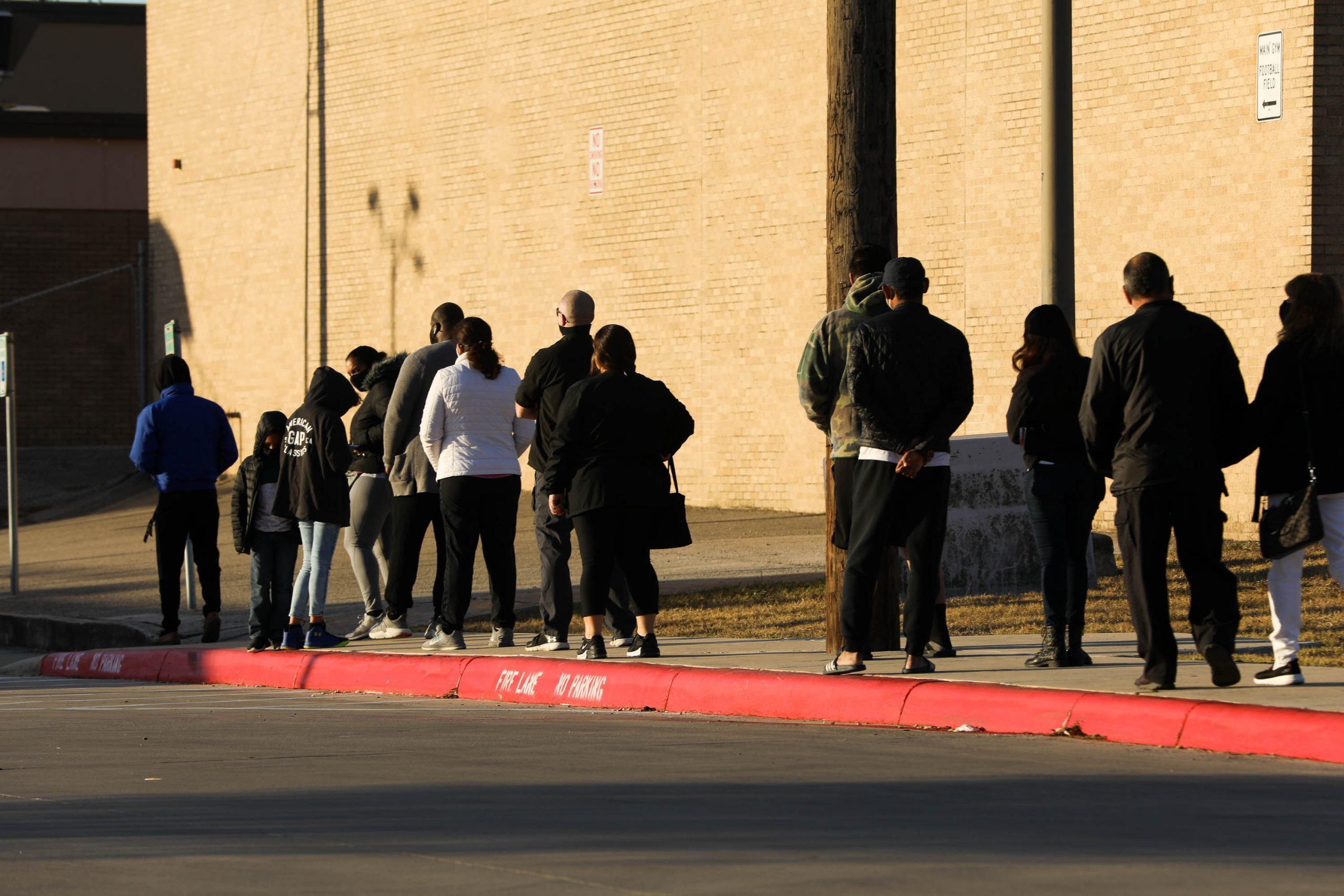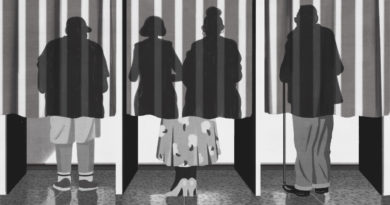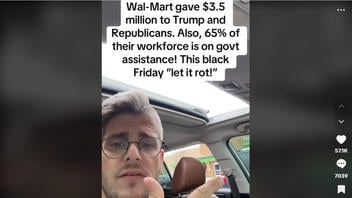The human danger of the Big Lie of massive election fraud

Sign up for The Daily Reach, and get all the news that’s fit for your inbox.
The conduct of last November’s presidential election was the most successful in modern history, both here in Bexar County and across the state. Statewide, almost 17 million citizens were registered to vote and a stunningly robust two-thirds of them did, a rare percentage in modern times. Bexar County also set records for registration and turnout.
Except in the first days of early voting, there were few of the long lines that plagued last March’s Super Tuesday primaries, even though traditional straight-party voting was outlawed.
The only controversies were generated by Republican activists and some party leaders objecting to an extended early voting period because of the coronavirus pandemic, a few 24-hour polling locations, and drive-thru voting in Houston.
So how does Gov. Greg Abbott respond? Naturally, he called a press conference to praise the state’s local elections administrators and their crews for the extraordinarily safe, efficient, and clean elections that required them to recruit thousands of new workers and put in heroic hours making polling places safe.
Just kidding. Instead he declared “election integrity” an emergency item last week as the Legislature kicked off its session.
Abbott justified including election security as an emergency item by noting that “every election that we have, concerns are raised about election fraud. And we need to take steps to make sure that we address those concerns and do everything possible to reduce election fraud.”
Of course “concerns are raised.” Republican officials have been touting massive election fraud for decades in order to justify a succession of legislation that has made Texas a national leader in voting restrictions. Democrats have not been raising such fears, despite the fact that they have been losing statewide elections for 30 years.
Voter fraud does exist, but not at a scale that comes close to influencing any but the smallest elections – those in small school districts or water districts. A few cases arose out of the November election, including one in San Antonio and one in Denton. The number of votes involved is likely in double digits, a drop in the flood of millions of votes cast.
This is not an anomaly. According to the Texas Tribune, the attorney general’s office, which has been aggressively searching for voter fraud for decades, closed cases on 150 offenders in the 25 years leading up to November’s election. During that time nearly 90 million votes were cast in statewide elections.
Fear mongering on election integrity has its costs, and we’ll get to that. But Abbott does deserve some credit. He said he didn’t believe the recent election was stolen from Donald Trump. That counts as something of an act of courage in Texas, where a recent University of Houston poll indicates about 4 in 5 Texas Republicans believe the election was tainted by “widespread fraud.”
Those unfounded perceptions have been spread by top Texas Republican leaders, including the lieutenant governor, the attorney general, and a U.S. senator. Now the new speaker of the Texas House of Representatives has joined in with a cynical appointment to the chairmanship of the House Committee on Elections.
Let’s start with the lieutenant governor. Dan Patrick, also state campaign chairman for Trump, was so desperate to support Trump’s assertion of massive election fraud that he offered a $1 million reward from his ample campaign chest to anyone who could provide proof of such.
“I support President Trump’s efforts to identify voter fraud in the presidential election and his commitment to making sure that every legal vote is counted and every illegal vote is disqualified,” Patrick said when he made national news with his gimmick. “The delays in counting mail-in ballots in other states raises more questions about voter fraud and potential mistakes.”
Nearly three months later, we’re still waiting for news of any contenders for the riches. That’s pretty good evidence that it doesn’t exist.
Attorney General Ken Paxton played a starring role. He took a minor but enthusiastic part in the Jan. 6 rally that sent Trump supporters off to the Capitol to try to stop by force the confirmation of Joe Biden’s victory. Then he briefly tried to lay blame for the violence on left-wing groups.
Earlier, Paxton had embarrassed himself nationally by filing directly with the Supreme Court a lawsuit that turned out to have been drafted by Trump’s lawyers. It sought to overturn the elections in four swing states. (The lawyers, worried about a current FBI investigation into allegations of Paxton’s corruption made by his top staff, tried first to recruit the Louisiana attorney general to file the suit, but he took a look at it and refused.) In Trump’s and Paxton’s fantasy, the Supreme Court, anchored by Trump’s three appointees, would overturn swing-state results and open a path for Trump for reelection. Instead, the court promptly and unanimously dismissed the suit as invalid on its face.
This was a disappointment to U.S. Sen. Ted Cruz, who had accepted Trump’s request that he argue Paxton’s case before the Supreme Court. Cruz also degraded himself by voting against certifying the election just hours after the riotous invasion of the Capitol by angry protesters attempting to prevent the certification by force.
Cruz justified his actions with the ludicrous proposal that he just wanted a 10-day audit to restore faith in the election – as though a single report based on a 10-day investigation could dent the hysteria that led to the conspiracies that had sprouted across the country.
Now comes new Texas House Speaker Dade Phelan (R-Beaumont). Last week he appointed to chair the House Elections Committee a representative who joined other volunteer lawyers traveling to Philadelphia to try to overturn Biden’s Pennsylvania victory.
Rep. Briscoe Cain (R-Deer Park) tweeted Nov. 6, three days after the election: “This Texas lawyer is flying to Philadelphia this morning to link up with a team of attorneys from across the country to fight for a fair and honest election …” Later that afternoon he tweeted, “Philly is crazy. I see dead people voting Look no further than PA’s own records …”
It’s easy to discover if dead people have voted. All you have to do is ask them. If they answer, they’re not dead. Upon investigation, “dead voters” almost invariably turn out to be live voters with the same names as dead people.
Cain’s tweets have since been expunged, but not praise for Cain’s efforts by Phelan when he promptly retweeted Cain’s announcement of his journey: “FACT – @BriscoeCain is never afraid of a fight!”
As chairman of the Elections Committee, Cain will be in a powerful position to push his own election fraud bills and a number of others already filed by his colleagues. He will also be able to kill any of the bills filed by Democrats trying to make voting easier in Texas.
Up until last November, wild claims of voter fraud were seen as just a cynical way to justify voter suppression measures. But in reality, years of such claims prepared the way for Trump to turn suspicions into actionable beliefs. The result was the assault on the Capitol by people who considered themselves patriots, people who felt justified in threatening elections workers, in launching death threats at elections officials in battleground states, and in attempting to forcibly prevent members of Congress from certifying the election, and even to violently punish them for attempting to do so.
The Big Lie of massive election fraud is what drove the rioters to the Capitol with threats of “saving our democracy” by violence. Paxton, Cruz, Patrick, and Cain were major players in pushing that lie.
One more point to bring the madness home. Trump ended up winning Texas comfortably, but polls leading up to the election had positioned the state as a battleground. Had there been a nationwide conspiracy to steal the election for Biden, the nation’s second most populous state most certainly would have been a target. Yet nobody has presented any evidence that it was.
Imagine if Biden had won Texas by a narrow margin. People like Bexar County Elections Administrator Jacqueline Callanen and her excellent staff would likely have been subjected to death threats, threats to their families, and angry and possibly armed demonstrations on their front lawns – all things that happened to honest election officials in battleground states.
That’s the human danger of the Big Lie of massive voter fraud.
*** This article has been archived for your research. The original version from San Antonio Report can be found here ***


